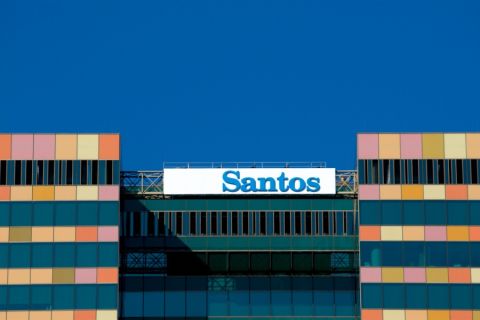Weak oil demand, exacerbated by the coronavirus outbreak, is threatening to force a new round of cost-cutting at U.S. shale companies needing to refinance debt or raise cash from oil and gas reserves.
U.S. producers continue to increase output, with total production this year forecast to rise 9% to an average 13.3 million barrels per day (bbl/d). But those gains are colliding with global demand growth, which analysts at Goldman Sachs Group last week revised down by half to 600,000 bbl/d for 2020, about half the expected new U.S. volume.
Oversupply and falling prices have left investors unwilling to put more money into the heavily indebted sector as refinancing needs grow. North American oil and gas producers have an estimated $86 billion of rated debt maturing in the next four years, according to Moody's Investors Service, money that will have to be paid off or rolled into new loans.
A 20% drop in U.S. oil prices so far this year will make it harder for companies to borrow against the value of their oil and gas reserves as banks reset their borrowing bases in coming months, said Buddy Clark, a partner at law firm Haynes and Boone LLP, which tracks oil and gas bankruptcies.
"It's not good timing for the producers" to be looking for new financing, said Clark. "Our expectation is that we will see some lower borrowing bases across the board as the spring borrowing base determinations season begins."
It is not just small producers with high debt burdens. Occidental Petroleum Corp. has some $14 billion in debt maturing through 2024. Exxon Mobil Corp. this week will face investors keen to hear more about its plan to sell assets to offset rising spending and its borrowing to pay shareholder dividends.
Occidental last week said if prices stay low, it could deepen spending cuts. It previously set a budget 40% below last year to help generate enough cash to cover spending and dividends.
Deeper cost-cuts are needed because credit investors are pulling back from riskier energy loans. In January, 36 of the 50 worst-performing high-yield bonds in the ICE/BofAML high-yield index were energy companies.
Shale producers like Laredo Petroleum Inc. and Range Resources Corp., were fortunate to refinance debt earlier this year before the coronavirus outbreak, said Josh Young, investment chief at oil and gas investor Bison Interests.
But the performance of their debt since then is a warning to other investors. Range Resources' 9.25% $550 million bond issued on Jan. 24 traded at 70.5 cents on the dollar on March 2, according to Refinitiv, while Laredo Petroleum's 9.5% $600 million bond issued on the same day traded at 72 cents on the dollar.
"If they hadn't extended their debt with many years and low covenants, they would have been in trouble," Young said.
Deeper production cuts could help prop up global oil prices and lessen the strains. U.S. crude futures rose about 5% on March 2 to $47 a barrel on bets that OPEC and its allies may cut at least another 600,000 bbl/d from production.
Recommended Reading
Santos’ Pikka Phase 1 in Alaska to Deliver First Oil by 2026
2024-04-18 - Australia's Santos expects first oil to flow from the 80,000 bbl/d Pikka Phase 1 project in Alaska by 2026, diversifying Santos' portfolio and reducing geographic concentration risk.
Iraq to Seek Bids for Oil, Gas Contracts April 27
2024-04-18 - Iraq will auction 30 new oil and gas projects in two licensing rounds distributed across the country.
Vår Energi Hits Oil with Ringhorne North
2024-04-17 - Vår Energi’s North Sea discovery de-risks drilling prospects in the area and could be tied back to Balder area infrastructure.
Tethys Oil Releases March Production Results
2024-04-17 - Tethys Oil said the official selling price of its Oman Export Blend oil was $78.75/bbl.
Exxon Mobil Guyana Awards Two Contracts for its Whiptail Project
2024-04-16 - Exxon Mobil Guyana awarded Strohm and TechnipFMC with contracts for its Whiptail Project located offshore in Guyana’s Stabroek Block.




